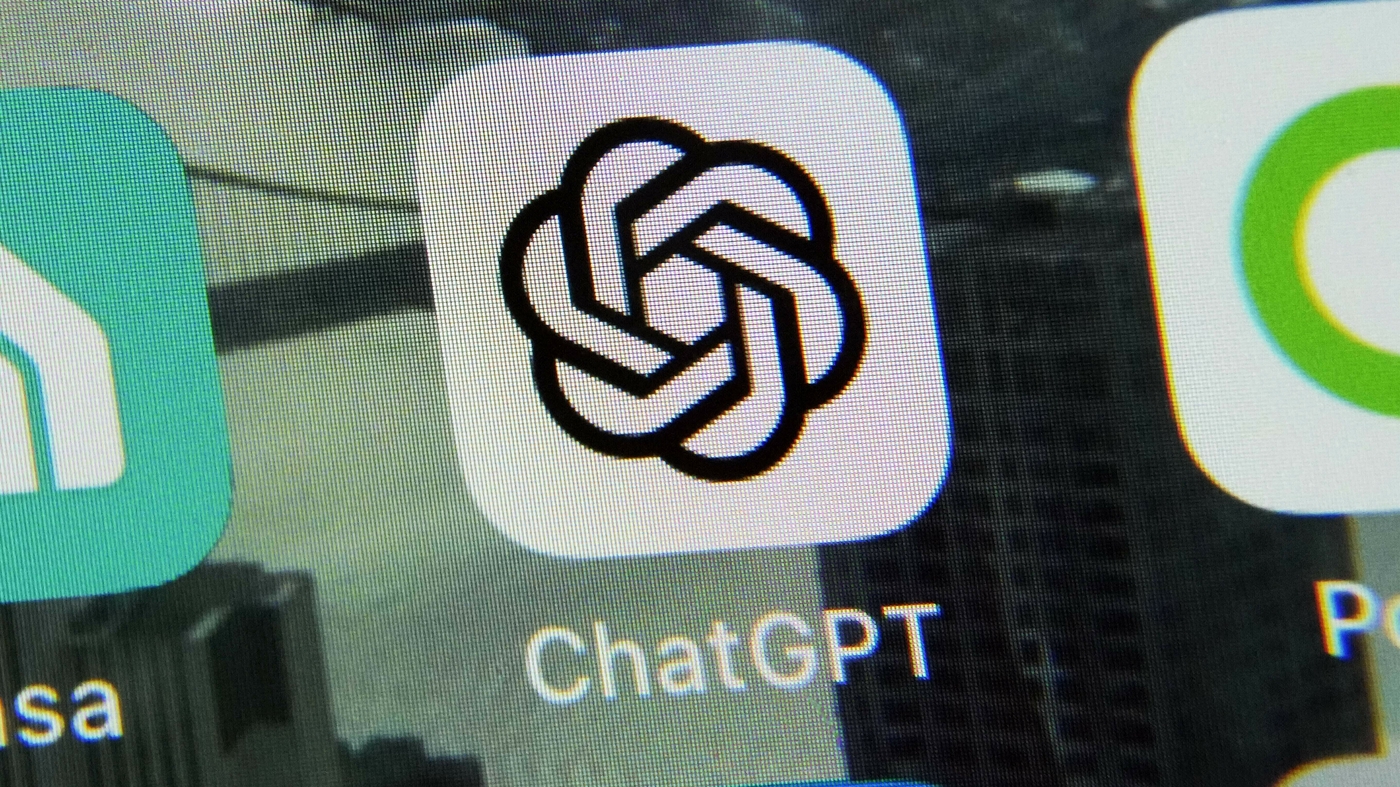

Researchers used ChatGPT to diagnose eye-related court cases and located it carried out smartly.
Richard Drew/AP
disguise caption
toggle caption
Richard Drew/AP

Researchers used ChatGPT to diagnose eye-related court cases and located it carried out smartly.
Richard Drew/AP
As a fourth-year ophthalmology resident at Emory College Faculty of Drugs, Riley Lyons’ largest obligations come with triage: When a affected person is available in with an eye-related grievance, Lyons should make a right away overview of its urgency.
He regularly unearths sufferers have already grew to become to “Dr. Google.” On-line, Lyons mentioned, they’re more likely to to find that “any choice of horrible issues might be happening according to the indicators that they are experiencing.”
So, when two of Lyons’ fellow ophthalmologists at Emory got here to him and instructed comparing the accuracy of the AI chatbot ChatGPT in diagnosing eye-related court cases, he jumped on the probability.
In June, Lyons and his colleagues reported in medRxiv, a web based writer of well being science preprints, that ChatGPT in comparison rather smartly to human docs who reviewed the similar signs — and carried out massively higher than the symptom checker on the preferred well being site WebMD.
And regardless of the much-publicized “hallucination” drawback recognized to afflict ChatGPT — its addiction of sometimes making outright false statements — the Emory learn about reported that the latest model of ChatGPT made 0 “grossly misguided” statements when offered with a regular set of eye court cases.
The relative skillability of ChatGPT, which debuted in November 2022, was once a wonder to Lyons and his co-authors. The factitious intelligence engine “is certainly an growth over simply hanging one thing right into a Google seek bar and seeing what you to find,” mentioned co-author Nieraj Jain, an assistant professor on the Emory Eye Middle who focuses on vitreoretinal surgical procedure and illness.
Filling in gaps in care with AI
However the findings underscore a problem going through the well being care business because it assesses the promise and pitfalls of generative AI, the kind of synthetic intelligence utilized by ChatGPT.
The accuracy of chatbot-delivered scientific knowledge might constitute an growth over Dr. Google, however there are nonetheless many questions on easy methods to combine this new era into well being care techniques with the similar safeguards traditionally carried out to the advent of latest medication or scientific gadgets.
The graceful syntax, authoritative tone, and dexterity of generative AI have drawn peculiar consideration from all sectors of society, with some evaluating its long term have an effect on to that of the web itself. In well being care, corporations are operating feverishly to put in force generative AI in spaces comparable to radiology and scientific data.
Relating to shopper chatbots, regardless that, there’s nonetheless warning, although the era is already broadly to be had — and higher than many choices. Many docs imagine AI-based scientific equipment must go through an approval procedure very similar to the FDA’s regime for medication, however that may be years away. It is unclear how any such regime may observe to general-purpose AIs like ChatGPT.
“There is no query we now have problems with get right of entry to to care, and whether or not or now not this is a excellent concept to deploy ChatGPT to hide the holes or fill the gaps in get right of entry to, it is going to occur and it is going down already,” mentioned Jain. “Other folks have already came upon its software. So, we wish to perceive the possible benefits and the pitfalls.”
Bots with excellent bedside way
The Emory learn about isn’t by myself in ratifying the relative accuracy of the brand new era of AI chatbots. A document printed in Nature in early July via a gaggle led via Google pc scientists mentioned solutions generated via Med-PaLM, an AI chatbot the corporate constructed particularly for scientific use, “examine favorably with solutions given via clinicians.”
AI might also have higher bedside way. Some other learn about, printed in April via researchers from the College of California-San Diego and different establishments, even famous that well being care pros rated ChatGPT solutions as extra empathetic than responses from human docs.
Certainly, plenty of corporations are exploring how chatbots might be used for psychological well being remedy, and a few buyers within the corporations are having a bet that wholesome other people may additionally experience chatting or even bonding with an AI “good friend.” The corporate in the back of Replika, one of the vital complicated of that style, markets its chatbot as, “The AI significant other who cares. All the time right here to concentrate and communicate. All the time to your aspect.”
“We want physicians to begin figuring out that those new equipment are right here to stick and they are providing new features each to physicians and sufferers,” mentioned James Benoit, an AI marketing consultant.
Whilst a postdoctoral fellow in nursing on the College of Alberta in Canada, Benoit printed a learn about in February reporting that ChatGPT considerably outperformed on-line symptom checkers in comparing a collection of scientific situations. “They’re correct sufficient at this level to begin meriting some attention,” he mentioned.
A call for participation to hassle
Nonetheless, even the researchers who’ve demonstrated ChatGPT’s relative reliability are wary about recommending that sufferers put their complete consider within the present state of AI. For plenty of scientific pros, AI chatbots are a call for participation to hassle: They cite a number of problems when it comes to privateness, protection, bias, legal responsibility, transparency, and the present absence of regulatory oversight.
The proposition that AI must be embraced as it represents a marginal growth over Dr. Google is unconvincing, those critics say.
“That is somewhat little bit of a disappointing bar to set, is not it?” mentioned Mason Marks, a professor and MD who focuses on well being legislation at Florida State College. He not too long ago wrote an opinion piece on AI chatbots and privateness within the Magazine of the American Scientific Affiliation.
“I do not know the way useful it’s to mention, ‘Neatly, let’s simply throw this conversational AI on as a band-aid to make up for those deeper systemic problems,'” he mentioned to KFF Well being Information.
The largest risk, in his view, is the possibility that marketplace incentives will lead to AI interfaces designed to persuade sufferers to explicit medication or scientific services and products. “Corporations may wish to push a specific product over every other,” mentioned Marks. “The potential of exploitation of other people and the commercialization of information is remarkable.”
OpenAI, the corporate that advanced ChatGPT, additionally recommended warning.
“OpenAI’s fashions aren’t fine-tuned to offer scientific knowledge,” an organization spokesperson mentioned. “You must by no means use our fashions to offer diagnostic or remedy services and products for critical scientific stipulations.”
John Ayers, a computational epidemiologist who was once the lead writer of the UCSD learn about, mentioned that as with different scientific interventions, the point of interest must be on affected person results.
“If regulators got here out and mentioned that if you wish to supply affected person services and products the usage of a chatbot, it’s important to show that chatbots give a boost to affected person results, then randomized managed trials could be registered the next day to come for a number of results,” Ayers mentioned.
He wish to see a extra pressing stance from regulators.
“100 million other people have ChatGPT on their telephone,” mentioned Ayers, “and are asking questions at the moment. Individuals are going to make use of chatbots without or with us.”
At the moment, regardless that, there are few indicators that rigorous trying out of AIs for protection and effectiveness is approaching. In Would possibly, Robert Califf, the commissioner of the FDA, described “the law of huge language fashions as crucial to our long term,” however excluding recommending that regulators be “nimble” of their way, he introduced few main points.
Within the intervening time, the race is on. In July, The Wall Side road Magazine reported that the Mayo Sanatorium was once partnering with Google to combine the Med-PaLM 2 chatbot into its gadget. In June, WebMD introduced it was once partnering with a Pasadena, California-based startup, HIA Applied sciences Inc., to offer interactive “virtual well being assistants.”
And the continuing integration of AI into each Microsoft’s Bing and Google Seek means that Dr. Google is already smartly on its technique to being changed via Dr. Chatbot.
This newsletter was once produced via KFF Well being Information, which publishes California Healthline, an editorially impartial carrier of the California Well being Care Basis.


